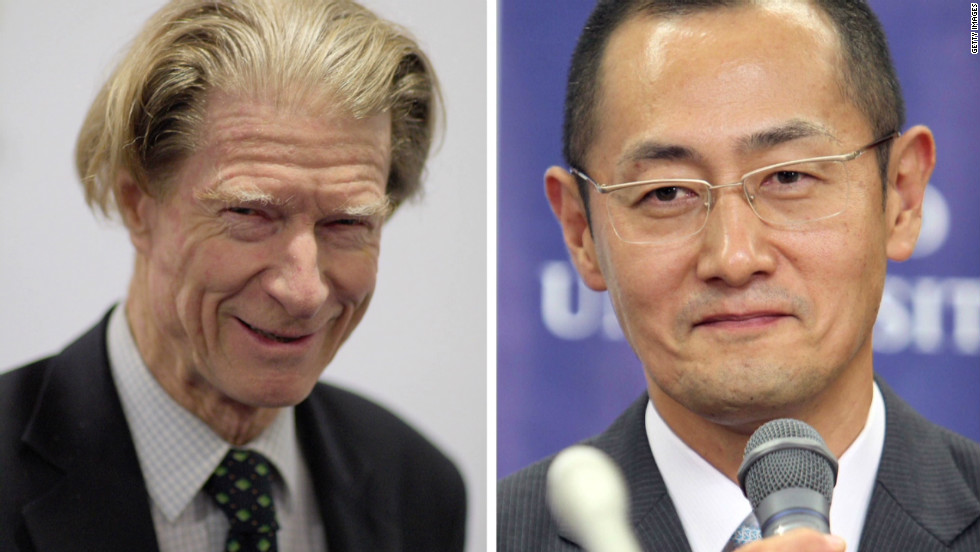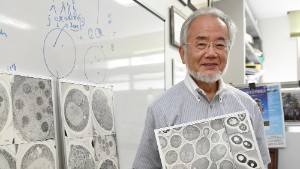Yoshinori Ohsumi wins Nobel Prize for medical research on cells
Biologist Yoshinori Ohsumi, of the Tokyo Institute of Technology, has been awarded the Nobel Prize in medicine prize or physiology for his discoveries in autophagy -- the process whereby a cell recycles part of its own contents.
Scientists had been aware of autophagy since around the 1960s, but knew little about how it worked -- until Ohsumi's pioneering experiments with baker's yeast in the 1990s.
It's important because autophagy can eliminate invading intracellular bacteria, and disrupted autophagy has been linked to Parkinson's disease, type 2 diabetes and other disorders that particularly affect the elderly.
At the time, researchers found a cell could destroy part of its own contents by transporting it to another compartment -- called the lysosome -- for degradation.
But as Nobel Committee member Juleen Zierath explained, Ohsumi showed that the lysosome "wasn't a waste dump -- it was a recycling plant."
The Nobel Prize winner's experiments in the 1990s used baker's yeast to identify genes essential for autophagy.
"He then went on to elucidate the underlying mechanisms for autophagy in yeast, and showed that similar sophisticated machinery is used in our cells," explained the Nobel Foundation in astatement.
What does it mean for us?
"Thanks to Ohsumi and others following in his footsteps, we now know that autophagy controls important physiological functions where cellular components need to be degraded and recycled," it said.
"Autophagy can rapidly provide fuel for energy and building blocks for renewal of cellular components, and is therefore essential for the cellular response to starvation and other types of stress. After infection, autophagy can eliminate invading intracellular bacteria and viruses."
The foundation also explains that disrupted autophagy has been linked to Parkinson's disease, type 2 diabetes and other disorders that appear in the elderly.
"Mutations in autophagy genes can cause genetic disease. Disturbances in the autophagic machinery have also been linked to cancer. Intense research is now ongoing to develop drugs that can target autophagy in various diseases," it added.
Remind me who won last year again?
In 2015, the prize was divided -- one half jointly going to Ireland's William C. Campbell and Japan's Satoshi Omura for "their discoveries concerning a novel therapy against infections caused by roundworm parasites."
And the other half awarded to China's Youyou Tu for "her discoveries concerning a novel therapy against Malaria."
From the vault
Back in 2012 Britain's John B. Gurdon and Japan's Shinya Yamanaka won the prize for discovering that mature cells can be reprogrammed to become immature cells capable of developing into all tissues of the body.
"Since the method we've developed doesn't require embryos, it could technically allow anybody with a slight knowledge of chemistry to transform skin cells, and even possibly down the road produce a human being from skin cells," said Yamanaka at the time.
Watch the video of their remarkable discovery below:

Cell discovery earns Nobel Prize
Did you know?...
The most common birthdays of Nobel Laureates is May 21 and February 28, with seven previous winners born on each of these dates.
News Courtesy: www.cnn.com











